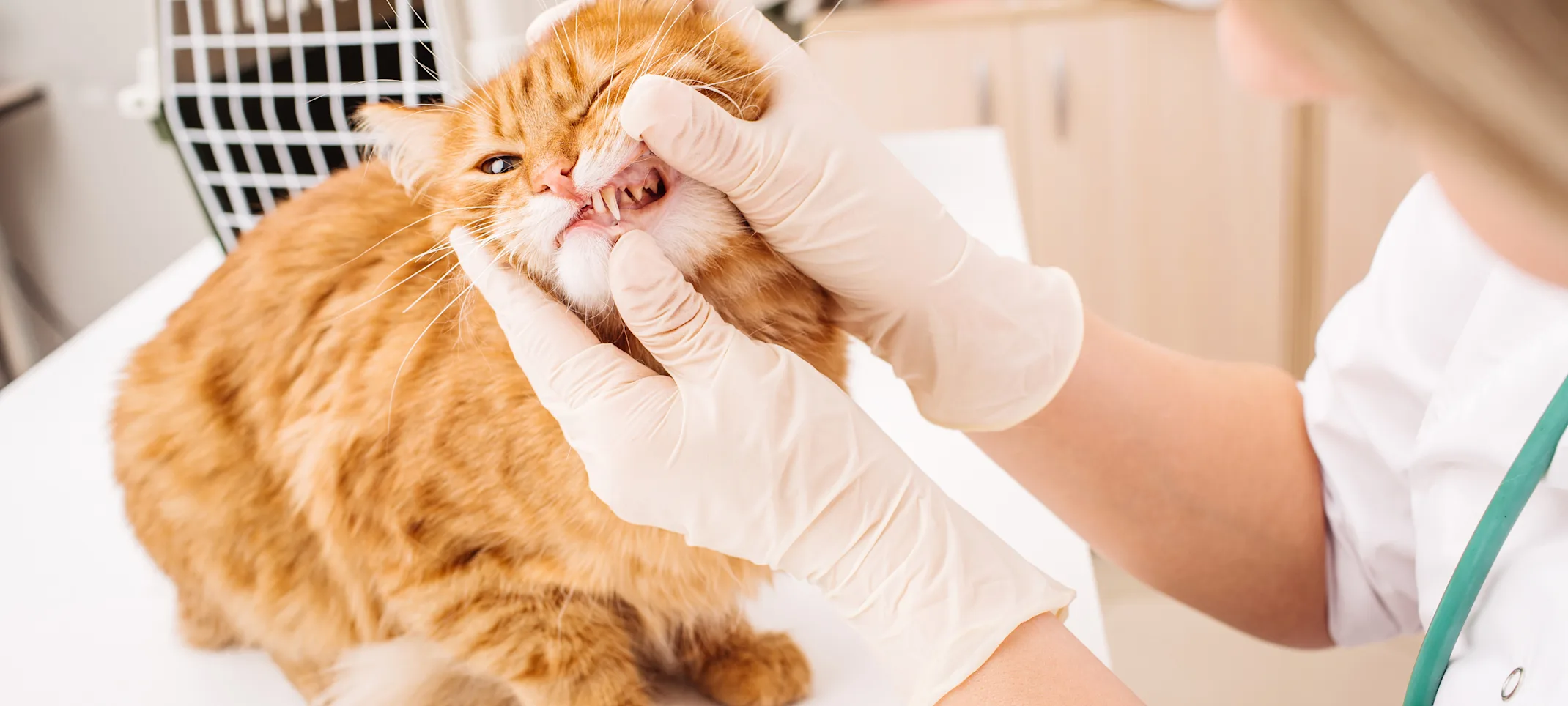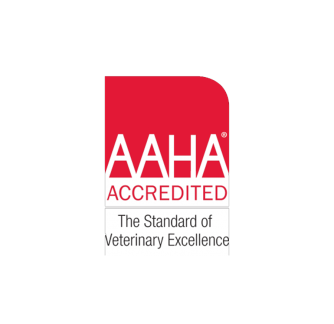West Frederick Veterinary Hospital
Dentistry
Annual dental exams and cleanings are recommended to protect your pet from many health problems and help them maintain a healthy and clean mouth.

Veterinary Dental Care in Frederick
Healthy Smiles & Happy Pets
Regular dental care is important to maintaining a happy and healthy pet. West Frederick Veterinary Hospital is equipped to help make sure your pet keeps smiling.
As an American Animal Hospital Association (AAHA) animal hospital, we can handle all of your pet’s dental needs. As part of their regular wellness exams, we conduct an oral exam of your pet and may make recommendations for additional dental or periodontal care.
Overview
Studies show that 50% of all dogs and cats have some form of periodontal disease. That number jumps to 80% in pets that are 3 years of age or older. If left untreated, periodontal disease can cause infection, pain, and tooth loss over time. It can also lead to serious health problems like microscopic changes in the heart, liver, and kidneys. Because of this, we recommend an annual veterinary dental healthcare examination for all pets.
Why do pets need dental care?
Many health problems start in the mouth. Plaque, tartar, periodontal disease, and infected teeth serve as a source of inflammation and infection for the rest of the body.
Dental disease is one of the most common problems that we see in dogs and cats. It can cause drooling, reluctance to eat, swelling, bad breath, redness of the gums, loose teeth and tooth discoloration.
Dental Disease: A Common Problem
Periodontal disease is one of the most common diseases in cats and dogs. This is an infection of the gums and tissues surrounding your pet’s teeth. When this disease is left untreated, it can progress dramatically and cause a great deal of damage to your pet’s mouth, as well as a great deal of pain. You can avoid this with regular dental care.
Periodontal disease develops in cats and dogs in exactly the same way it does in humans: a buildup of plaque on your pet’s teeth. Plaque is a bacterial film which coats your pet’s teeth. Over time, the bacteria in plaque dies off and hardens on your pet’s teeth, creating more surface area for more plaque to build up on.
In the early stages, periodontal disease is easily combatted by brushing your pet’s teeth or giving them hard toys or treats to chew on. However, if the plaque builds up and moves below the gum line, only a professional cleaning will be able to get rid of it.
If your pet goes too long without a proper professional cleaning, their gums can become inflamed, infected, and painful. They could even lose some of their teeth.
Symptoms of periodontal disease include:
Smelly breath
Blood in your pet’s saliva or in their water dish
Excessive drooling
Difficulty eating
If you notice any of these symptoms, bring your pet in to West Frederick Veterinary Hospital as soon as possible. We can help get your pet back on the road to a healthy mouth.
When should I seek dental care for my pet?
Dental issues and dental related diseases can easily be prevented by visiting our veterinarians regularly for dental examinations and cleanings. We take a comprehensive approach to dental care including dental health assessment, treatment, and prevention.
Professional Dental Cleaning at West Frederick Veterinary Hospital
Our veterinary team may recommend a professional dental cleaning which may mean putting your pet under general anesthesia in order to clean their teeth properly. We utilize a specifically designed dental surgical suite to ensure that your pet is monitored closely and carefully throughout their dental procedure.
Dental cleanings at West Frederick Veterinary Hospital involve scaling the plaque from your pet’s teeth, polishing your pet’s teeth, and evaluation of teeth and gum health. Once your pet’s teeth are clean again, we’ll help you understand the steps you can take at home to keep your pet’s smile healthy. We also provide digital dental radiographs and perform tooth extractions when medically necessary.
How does it work?
Teeth Exams, Cleaning and Polishing
Dog and cat dental cleanings are very similar to human dental cleanings, except that we are required to use anesthesia to properly and safely examine and clean the teeth. After the cleaning, our veterinarians perform a thorough oral exam and check for signs of disease like gum loss, root exposure, or pockets around the root.
Also similar to human dentistry, we do full mouth radiographs (x-rays) of your pet. This allows our veterinarians to be able to evaluate the roots of your pet's teeth as well as any disease or abnormalities that are located below the gum line and not visible on examination alone.
Tooth Extractions
We make every effort to save teeth that we feel have a chance to be successfully treated. In many circumstances, however, periodontal disease is so advanced that treatment without extraction is unsuccessful. We only extract teeth that in the doctor's opinion are beyond saving.
Minor Oral Surgery
Many teeth require oral surgery to safely remove each individual root. We have extensive training and experience to perform these procedures properly. Pain medications are administered in clinic and provided for in-home aftercare.

